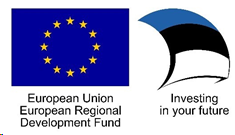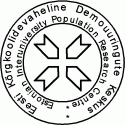Public lecture by Gunnar Andersson „Cohort and Period Fertility Developments in the Nordic countries”
Public lecture by Gunnar Andersson „Cohort and Period Fertility Developments in the Nordic countries”
Add to calendar
iCal calendarThe Nordic countries are renowned for their systems of social and gender equality, as well as their relatively high fertility. Some of these patterns may be set to change. Together with a Nordic team of demographers, we present a set of indices of cohort and period fertility in order to depict ongoing fertility developments. The analyses are based on register data that were harmonized for the purpose of comparative research. We produced measures of ultimate fertility and childlessness, stratified by gender and educational attainment, for cohorts born in 1940 onwards in the four largest Nordic countries. Cohort fertility initially declined, although for cohorts born in the 1950s and later, it has remained relatively stable. Childlessness remained relatively stable in Denmark, Norway and Sweden. Women’s negative educational gradient in relation to total fertility vanished, except in Finland, while men’s positive gradient persisted. We witness both a new gender similarity and persistent (among men) and new (among women) educational disparities in childbearing outcomes in the Nordic region. The low-educated segments of the population seem to face increasing social and economic disadvantages that are reflected as well in their patterns of family formation. In further research, we study more recent developments in period fertility in the same set of countries, adding Iceland to the picture. This is motivated by recent and still ongoing period fertility declines across the Nordic region, which calls for more in-depth research on the underlying structures of recent declines. In particular, we compare childbearing in the aftermath of the two most recent crises that hit Nordic economies: those of the 1990s and 2010s. We use event-history techniques to present parity-specific risks by calendar year relative to a pre-recession year. We demonstrate an increasing similarity in fertility responses across the five Nordic countries, with lower parities contributing more strongly to fertility declines. To a large extent, however, the ongoing declines are still a conundrum that motivates further research based on other types of data and new methods of analyses.
Schedule:
3.15-3.30 pm Coffee and snacks
3.30-5.00 pm Public lecture by professor Gunnar Andersson
For additional information:
Gunnar Andersson (Professor of Demography, Stockholm University) in cooperation with Sven Drefahl (Associate Professor of Demography, Stockholm University) will give the course „Event-History Analysis with Stata: Regression for Longitudinal Event Data“ on 18.03, 19.03, 21.03, 22.03 and 28.03.2019 at Tallinn University. Please find more information about the course here.

.jpg)

Activity is financed by the European Regional Development Fund through the institutional package measure for R&D institutions and higher education institutions (ASTRA project TLU TEE of Tallinn University) and is organised by Doctoral School of Behavioural, Social and Health Sciences and by TU Centre of Excellence in Interdisciplinary Life-course Studies in collaboration with Estonian Association of Population Studies (Eesti Demograafia Assotsiatsioon) and with Estonian Interuniversity Population Research Centre.